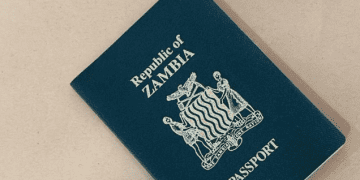Part 2
28.08.2024Trust and good culture reputation could help build a strong belief in the reliability of the acquis frameworks that guide economic integration agenda, said Dr. Kelvin Kamayoyo, Zambian Economist and Scholar. For instance, the continental economic integration agenda has been and remains a top priority for African countries so as to help expand intra-Africa trade for growth and sustainable development. Thus, prior to the establishment of the African Continent Free Trade Area (AfCFTA) which is in line with the signed June, 1991 “Abuja Treaty” committing the continent along the path of economic integration and providing for the creation of the continent-wide African Economic Community (AEC) by 2027. Since then over 8 regional economic groupings have been created covering 54 African countries. Today, Africa has more regional economic groupings than any other continent globally.
The AfCFTA has among its general objectives, specifically Article 3 (a) to create a single market for goods, service, facilitated by movement of persons in order to deepen the economic integration of the African continent and in accordance with the Pan-African Vision of “An integrated, prosperous and peaceful Africa” enshrined in Agenda 2063.” ln the last 5 decades regionalism has been pursued and embraced by most African countries as a viable framework to addressing obstacles to intra-Africa trade and enhancing the continent’s competitiveness. However, more still needs to be done to embrace cultural transformation anchored on trust that translates into improved availability of goods and services, and wider selection of them.
According to the Economic Development in Africa Report 2009, the 5 major regional economic groupings in Africa with dates of entry into force are Common Market for Eastern and Southern Africa (COMESA) on 8th December, 1994; Economics Community of West African States (ECOWAS) on 24th July, 1993; Arab Maghreb Union (UMA) on 17th February, 1989; East African Community (EAC) on 7th July, 2000; and Southern African Development Community (SADC) on 1st September, 2000. Notwithstanding, the commitment to regionalism as part and parcel of the broader aspiration of continental integration, the level of intra-Africa trade has still remained undesirably low while some countries continue to erect trade barriers and implement adverse inward-oriented import substitution industrialisation strategies based on the infant industry protection theory.
Africa need to rekindle it’s strategy pursuant to the April, 1980 Lagos Plan of Action (LPA) in order to boost intra-trade and maximise utilisation of domestic resource to foster industrialisation. “The Lagos Plan of Action is aimed at repositioning the continent of Africa on a sustainable development path by pursuing the three goals namely: (a) high and sustained economic growth; (b) transformation of the economy and social structures; and (c) maintenance of a sustainable resource base.” African countries need to “walk the talk” of intra-trade and accelerate efforts towards industrialisation in order to widen the spectrum of intra-continental competition, enhance consumer preferences for local products, and begin to trade more with each other. However, it is never too late to make tremendous improvement because Africa has great potential for growth given it’s abundant natural resources, and is endowed with rich culture diversity.
The noble campaign to increase intra-trade on the continent of Africa will have to be championed by everyone on the continent and the like-minded beyond in order to promote inclusive and impactful global economic integration. This notwithstanding, the inherent competitive pressure for growth among global continents remains unquestionable. Despite trade facilitation and trade liberalisation being important to reducing transaction costs of cross-border trade and cost of doing business in Africa, the full benefits are delayed owing to the prevalence of mistrust and bad culture reputation amongst traders and investors transacting on the continent. Against this backdrop, there is need to mitigate mistrust risks in trade especially cross-border transactions by building stronger relationships, improve economic diplomacy with increased private sector involvement or participation and fostering a culture anchored on trust and mutual cooperation for a prosperous Africa.
This is the second Part in the series of articles aimed at mindset change to encourage African consumers to prefer more of local products and traders to trade more with each other. Send comments to: kamayoyokm@gmail.com

















